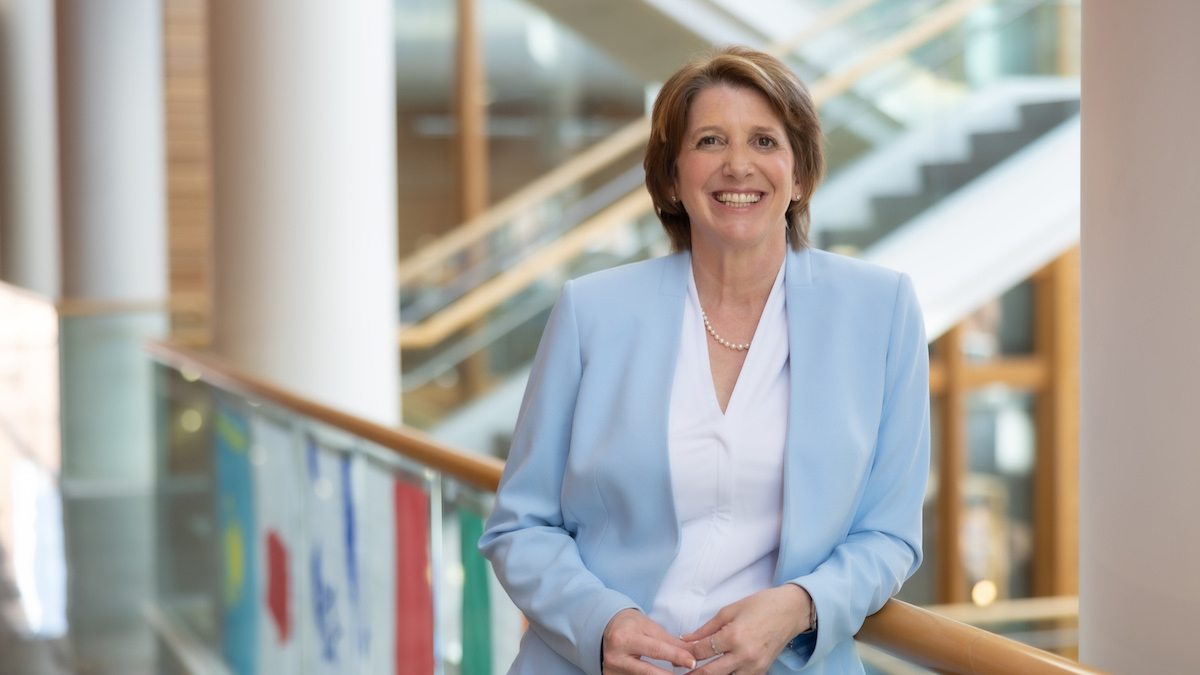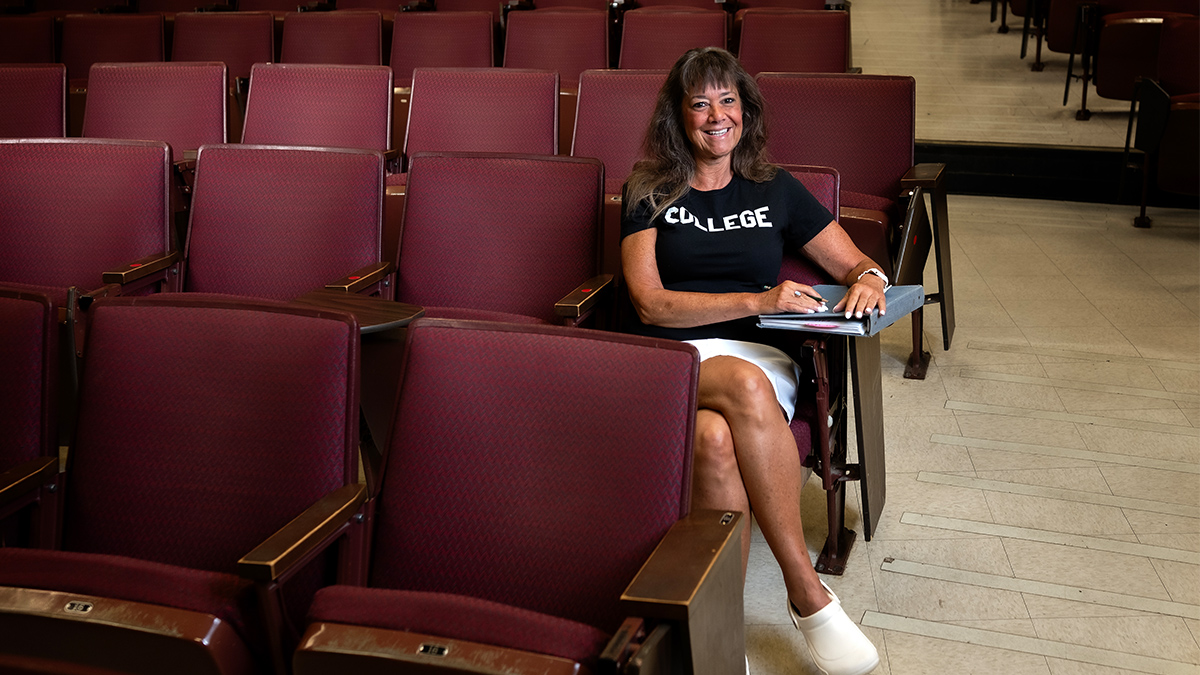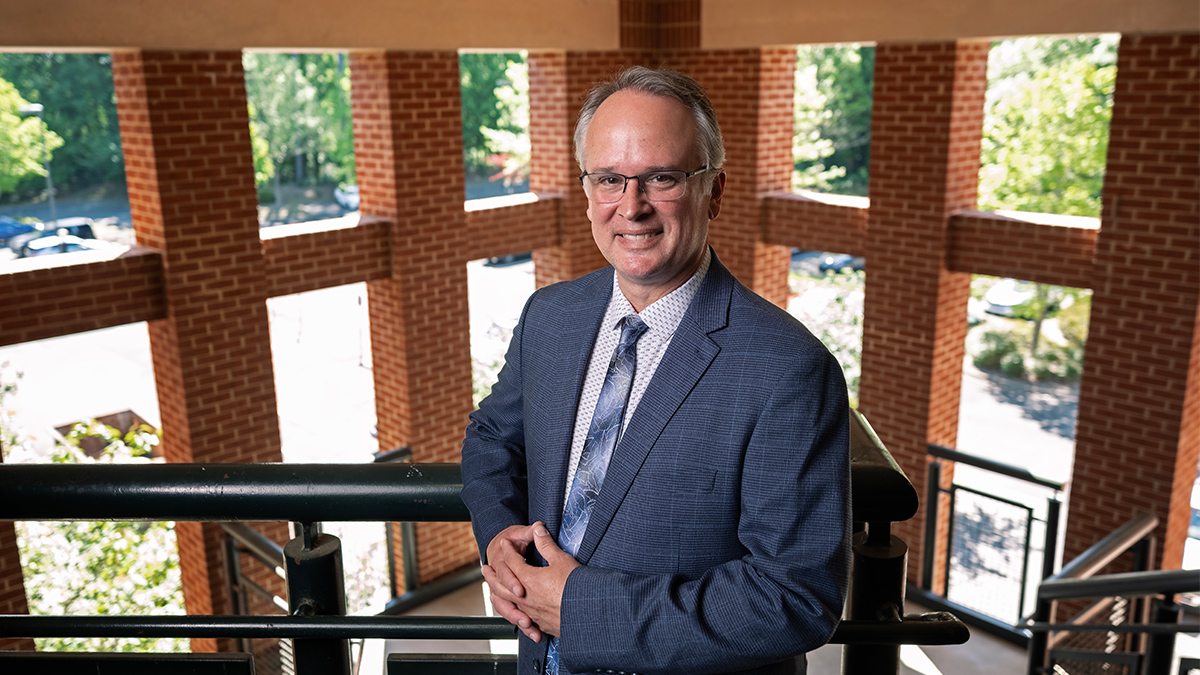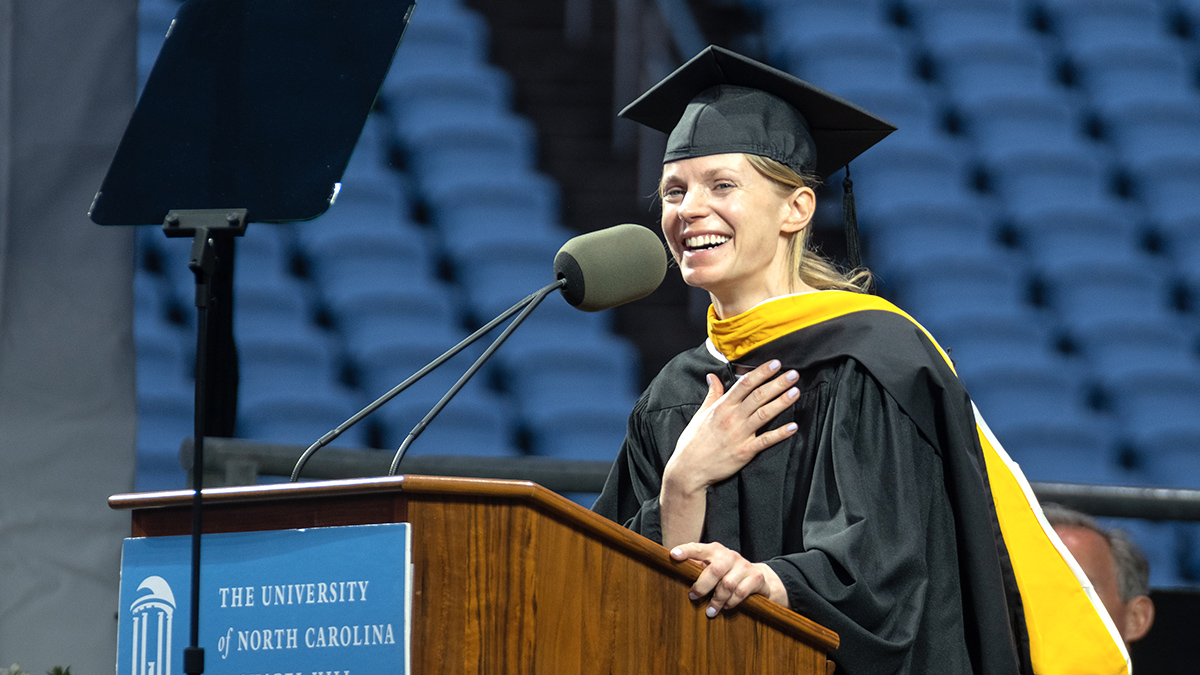Meet Dr. Nancy Messonnier, public health dean
Meet Dr. Nancy Messonnier, public health dean

This story continues The Well’s series of Q&As with Carolina’s newest deans.
Dr. Nancy Messonnier is dean of the Gillings School of Global Public Health and the Vaughn and Nancy Bryson Distinguished Professor in Public Health. She has more than 25 years of experience in leadership posts at the Centers for Disease Control and Prevention and as the executive director for pandemic prevention and health systems at the Skoll Foundation.
Messonnier led the CDC’s National Center for Immunization and Respiratory Diseases and its response to a then-unknown respiratory disease in China in late 2019, which evolved into the COVID-19 pandemic. She was the CDC’s chief architect of the COVID-19 vaccine implementation program and she helped develop, evaluate and distribute COVID-19 vaccines across the United States.
In her early medical work, Messonnier learned about public health in a clinical setting and how to apply epidemiology tools as part of a vaccine strategy for a large population. She tells future public health leaders, “Don’t be afraid to say yes. Don’t be afraid to fail at something.”
What’s something you’ve learned about Carolina or North Carolina since you arrived?
People really love the color blue!
I’m sort of joking, but I also find the devotion to Carolina blue symbolic of how much people love the University and how connected the school is with the state of North Carolina. There’s a sense of community here that isn’t just talk — it’s expressed in the way people act every day.
I came here from Georgia, simultaneously moving from a government position to academia, and people across the board have embraced me during the transition. From Gloria Thompson, the Gillings School’s beloved daytime housekeeping porter, to Chancellor Kevin Guskiewicz, everyone has given me a hand when I’ve needed it.
All that is to say, the unique spirit on this campus shouldn’t be underestimated. North Carolina is a microcosm of the United States in terms of both the challenges we face and the successes we’ve had. If we can continue to collaborate across the low stone walls of UNC-Chapel Hill, we can help both the state and the country achieve their potential.
How is your school fulfilling Carolina’s mission of teaching, research and public service?
We serve the state, nation and world in three main categories:
- Clean air and water.
- Healthy families and communities.
- Preparedness.
In just the past few months, Gillings researchers have found “forever chemicals” in air pollution near a Fayetteville manufacturing plant; demonstrated that states with better access to SNAP benefits see fewer reports to Child Protective Services; and proven that COVID-19 vaccines offer lasting protection.
But we don’t just conduct research! I believe that quality research, teaching and public service are mutually reinforcing. When we train students with a highly experiential curriculum, they directly support the research of our world-class faculty and get hands-on through practica and internships that take place across the state.
What’s one example of how you are addressing a current top priority for your school?
The pandemic has re-emphasized the connection between domestic and global health, and my entire career has taken place at that intersection. I want to elevate our activities in this area and maximize opportunities for students to get meaningful exposure to global health.
Currently, the Gillings School is home to more than 80 global health faculty members who work in over 35 countries. Global health content infuses our degrees, and more than 45 courses have a special designation that means at least 50% of their content is related to global health.
Students require a broad range of skills to thrive in our modern global society. What they learn in Chapel Hill, they share much more broadly — and what they learn globally, they bring back to North Carolina.
What do you want others across Carolina to know about public health?
Public health is about everyone having long, healthy and fulfilling lives. Good health is foundational to everything else we do.
One of my goals as dean is to strengthen connections between our school and all other parts of Carolina, because I believe public health touches every other discipline. For example, Gillings’ environmental engineer Orlando Coronell worked with the College of Arts and Sciences chemistry department’s Frank Leibfarth to develop a filtration system that removes PFAS from water. Other faculty are collaborating with Hussman School researchers to combat mis- and disinformation.
I think my fellow deans would all echo that we’re fortunate to have partners who are thinking about how we can be stronger and accomplish more together.




